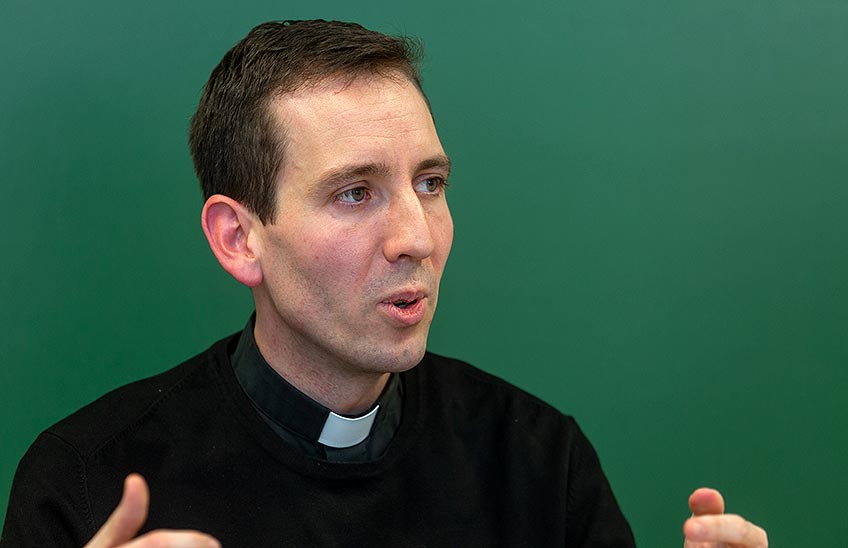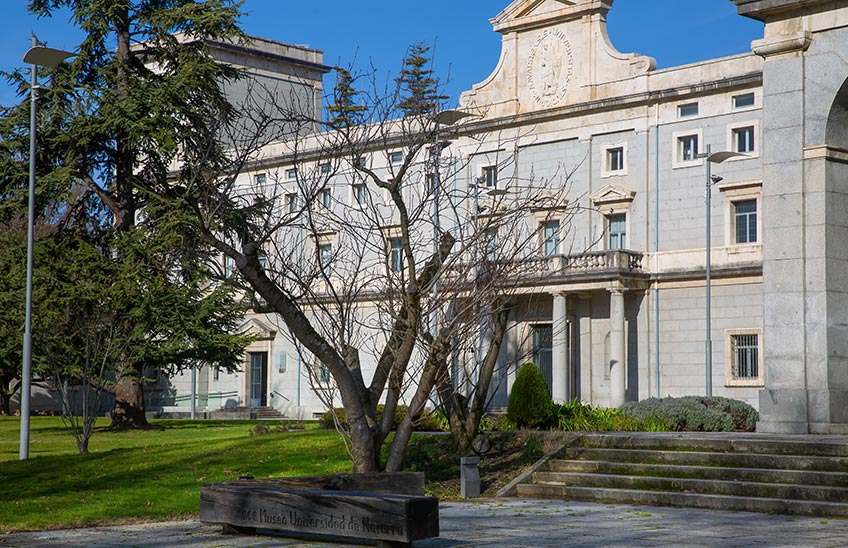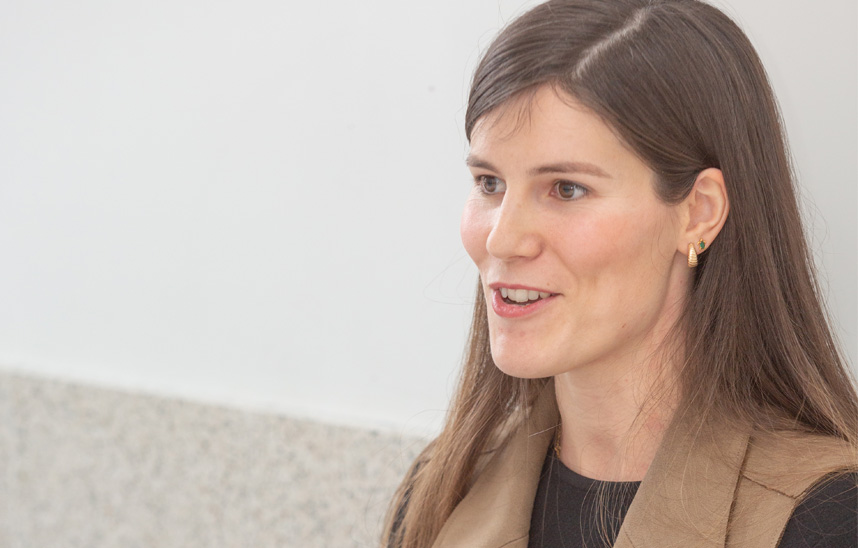Divine brilliance in the verses of Ernestina de Champourcin
Antonio Rodríguez Tovar, winner of the award Ernestina de Champourcin 2022, gives a seminar of the group of research in Recent History (GIHRE)

PhotoManuelCastells/Antonio Rodríguez Tovar
15 | 03 | 2022
"The poetic trajectory of Ernestina de Champourcin encloses the story of a search for God", explained Antonio Rodríguez Tovar in the last seminar of group of research in Recent History of the University of Navarra (GIHRE). His research about the religiosity of the author has been awarded ex aequo of the annual award that, with the name of the prestigious poet of the generation of 27, submission the GIHRE to programs of study on women.
The life of Ernestina de Champourcin (1905-1999) spanned much of the 20th century. Although she was born in Vitoria, her life straddled the Spanish capital, Madrid, a centre of bustling literary and political life where her family moved when she was just a few years old, and Mexico, where she went into exile along with some of the other losers of the Spanish Civil War. Champourcin, married to Juan José Domenchina, also a poet and secretary to Manuel Azaña, president of the Republic, took refuge in Mexico until 1972, when she returned to a Madrid less welcoming than the one she remembered from her youth. Throughout this time his search for God punctuated his literary career, influenced by Juan Ramón Jiménez, San Juan de la Cruz, the works of the Generation of '27 and the cultural environment of institutions such as the Lyceum Club for women directed by María de Maeztu.
Rodríguez Tovar, who has based his research on the literary work of the author and the study of her correspondence staff, described in the seminar of the GIHRE the romantic mood of a young Ernestina de Champourcin educated in an environment close to an intimate Catholicism of French roots. Her experiences during Holy Week, a trip to Loyola or a certain Christmas Eve had a lasting, though still superficial, impression on her. Her first poems reveal the religiosity of a woman in pursuit of aesthetic emotions. After the Civil War, which cut short her youth, she moved to Mexico to begin a journey that threatened to resemble a journey through the desert, lacking in poetry, but which, after a trip to Washington in 1948 to talk with Juan Ramón Jiménez and read the Mountain of the Seven Circles, by the poet and convert Thomas Merton, became the scene of a profound conversion. The literary result was an abundant work of religious themes combined with her own life, in which there is no shortage of experiences of pain and loneliness such as the death of her husband in 1959.
In Mexico, Ernestina de Champourcin became acquainted with the work that Opus Dei was beginning to develop there. According to Rodríguez Tovar, her membership of this institution from 1953 onwards changed her way of writing and her understanding of poetry; inspiration and vocation merged in a new literary phase. Josemaría Escrivá advised him to continue writing: at any time and on any paper. The call to sanctify the work staff translates in her case into a dedication to good poetry, which she continued to cultivate in Mexico and later in Madrid. She often hears from her husband, also a convert to Catholicism, that "poetry is a dialogue with God". The award-winning work stresses that she herself, perhaps unconsciously at first, but then with determination, gave different meanings to this expression: from the search for the sublime aesthetic experience of her youth to an old age in which, as she writes in the prologue to the anthology Dios en la poesía actual, which she has written for the BAC, God is always in some way or other in poetry. Thus, without abandoning poetry with a religious theme, she began to let a divine sense penetrate all her verses, consecrating herself, as she herself would say of another writer of 1927, Gerardo Diego, as a Catholic who wrote poetry.
thesis The work winner of the award, the result of a doctoral thesis entitled Aesthetic mysticism, religious poetry and sanctification of literary work: three stages of the search for God in the life and work of Ernestina de Champourcin, defended at the Pontificia Università della Santa Croce in Rome, will soon be published in the collection dedicated to award by publishing house EUNSA.



